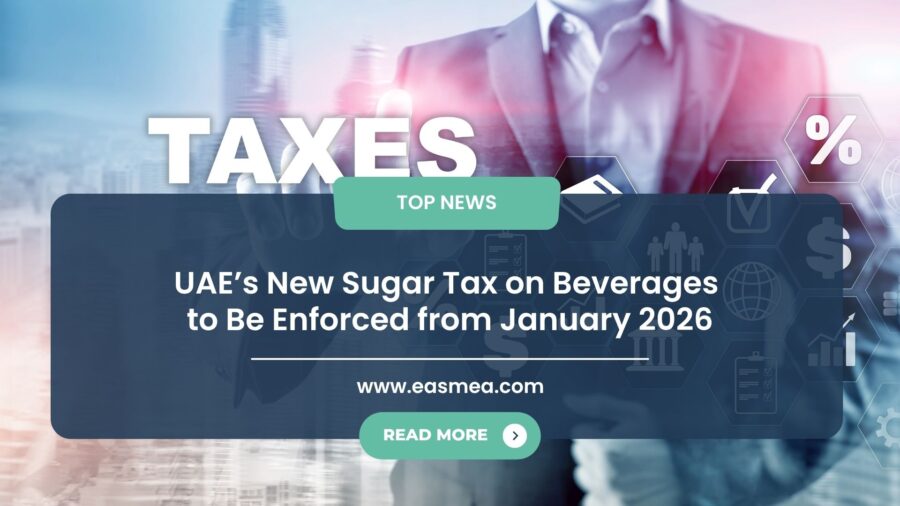Dubai, UAE — October 2025 — The UAE’s Ministry of Finance has unveiled sweeping amendments to the country’s excise regulations: beginning January 1, 2026, a tiered sugar tax on beverages will be introduced, shifting from fixed-category levies to a volumetric model based on sugar content.
-
- What the Change Entails
- Government Rationale & Public Health Goals
- Business Reactions & Industry Preparedness
- Implementation Timeline & Compliance
- Effective date: January 1, 2026
- Transition period: The Ministry has indicated there will be a grace period for businesses to comply with labeling and reporting changes.
- Audit & enforcement: Tax authorities will conduct inspections and impose penalties for non-compliance.
- Public transparency: Regulations will include guidelines on defining “sweetened beverage,” sugar thresholds, documentation obligations, and tax return mechanisms.
- What Consumers Should Expect
- Outlook & Challenges
- How Excellence Accounting Services Can Help
- Conclusion
What the Change Entails
Under the revised regulation, all sweetened beverages will be taxed according to the amount of sugar or other sweeteners they contain — rather than by their broad product classification. The highest tier will carry a 50% excise tax for drinks exceeding a designated sugar threshold.
The Ministry said that businesses importing or manufacturing beverages already taxed under the prior regime may claim deductions if their tax liability drops under the new system.
The reform aligns with a broader GCC initiative to adopt a volumetric excise model for sugar-sweetened drinks. The government states the shift will enhance competitiveness and provide a more transparent, fair tax structure across the UAE’s emirates.
Government Rationale & Public Health Goals
Authorities emphasize that the aim is twofold: to discourage excessive sugar consumption and to promote healthier beverage choices. Ministerial communications suggest that the updated system offers more precision in taxing, and also paves the way for future adjustments tied to nutritional guidelines.
A spokesperson for the Ministry of Health commented, “By aligning taxation directly with sugar content, we are better positioned to influence consumer choices and reduce rates of obesity, diabetes, and related illnesses.”
Business Reactions & Industry Preparedness
The beverage industry has responded with a mix of caution and adaptability. Some manufacturers are exploring reformulation to bring their sugar levels below the higher tax tiers. Retailers and importers are reviewing their supply chains and pricing strategies to accommodate potential cost pressures.
One major regional distributor told Easmea anonymously:
“We need clarity on implementation rules and transitional support. The shift in tax basis is significant — it affects labeling, logistics, and margins.”
Implementation Timeline & Compliance
Effective date: January 1, 2026
Transition period: The Ministry has indicated there will be a grace period for businesses to comply with labeling and reporting changes.
Audit & enforcement: Tax authorities will conduct inspections and impose penalties for non-compliance.
Public transparency: Regulations will include guidelines on defining “sweetened beverage,” sugar thresholds, documentation obligations, and tax return mechanisms.
What Consumers Should Expect
Consumers may see slight price increases on sugary drinks, especially those with high sugar content. Meanwhile, low-sugar or zero-sugar alternatives could become more competitively priced. Some brands may market “sugar-light” or “reduced sugar” versions more aggressively during the transition.
Outlook & Challenges
While the volumetric model is widely regarded as more equitable and precise, enforcement and measurement accuracy remain key challenges. Regulators will need to ensure the capability to test sugar levels, enforce compliance, and adjust thresholds over time.
To ensure smooth compliance, companies are advised to begin early excise impact assessments and consult with tax professionals to understand the financial implications.
How Excellence Accounting Services Can Help
As the UAE transitions to the new sugar tax model, Excellence Accounting Services (EAS) stands ready to assist businesses in adapting effectively.
EAS offers:
- Excise Tax Advisory & Compliance: End-to-end guidance to ensure full alignment with the Federal Tax Authority’s requirements.
- Impact Analysis & Cost Planning: Assessment of how the sugar-based tax affects product pricing, profitability, and reporting obligations.
- Documentation & Audit Support: Assistance with excise filings, record-keeping, and readiness for potential FTA audits.
- Business Strategy Consultation: Helping manufacturers and distributors restructure product portfolios to minimize tax exposure.
With in-depth expertise in UAE excise and corporate tax law, Excellence Accounting Services empowers companies to navigate regulatory changes confidently and maintain compliance without disrupting business operations.
For personalized excise consultation, visit www.easmea.com or contact EAS’s tax advisory team.
Conclusion
The upcoming UAE sugar tax, effective January 2026, marks a significant milestone in the nation’s commitment to a healthier society and a fairer taxation model.
While the reform introduces operational and financial challenges for the beverage industry, it also offers an opportunity for innovation and product improvement.
With expert support from Excellence Accounting Services, businesses can stay compliant, strategic, and well-prepared for this next phase in the UAE’s evolving tax landscape.




